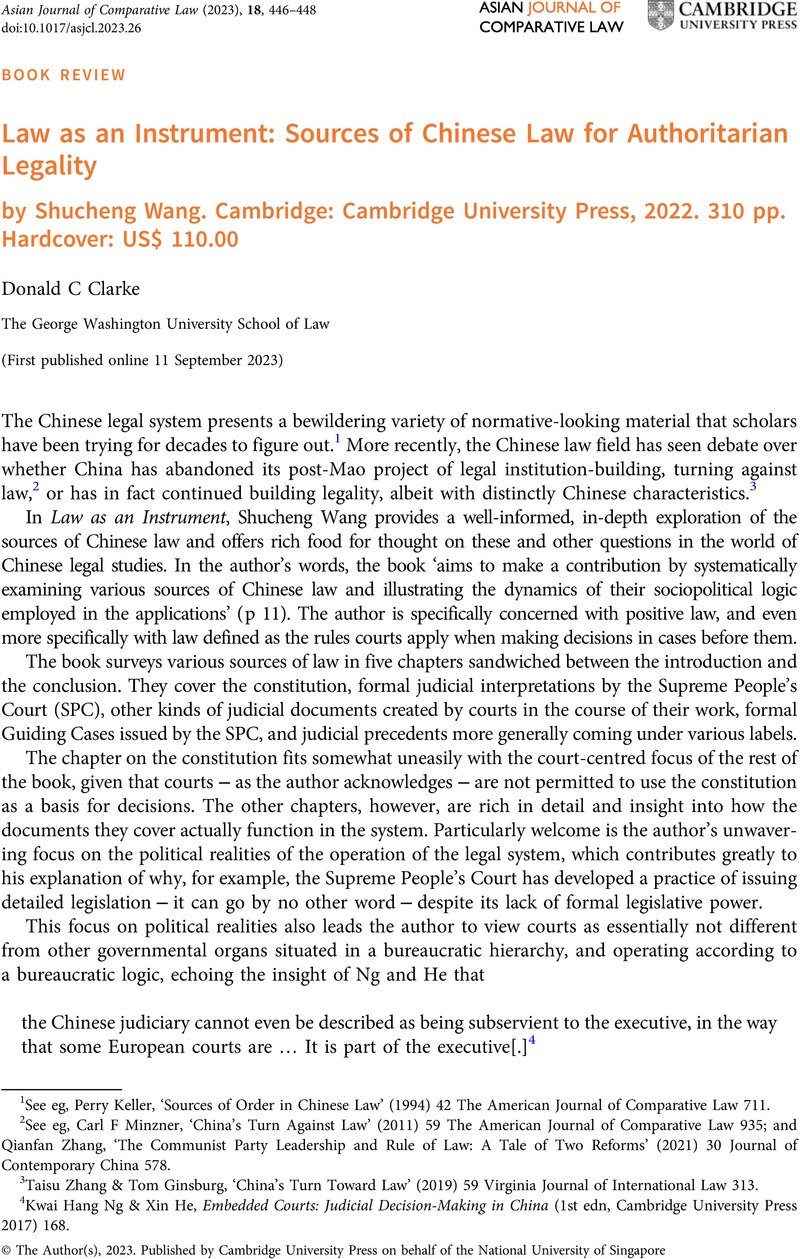No CrossRef data available.
Published online by Cambridge University Press: 11 September 2023

1 See eg, Keller, Perry, ‘Sources of Order in Chinese Law’ (1994) 42 The American Journal of Comparative Law 711CrossRefGoogle Scholar.
2 See eg, Minzner, Carl F, ‘China's Turn Against Law’ (2011) 59 The American Journal of Comparative Law 935CrossRefGoogle Scholar; and Zhang, Qianfan, ‘The Communist Party Leadership and Rule of Law: A Tale of Two Reforms’ (2021) 30 Journal of Contemporary China 578CrossRefGoogle Scholar.
3 Zhang, Taisu & Ginsburg, Tom, ‘China's Turn Toward Law’ (2019) 59 Virginia Journal of International Law 313Google Scholar.
4 Ng, Kwai Hang & He, Xin, Embedded Courts: Judicial Decision-Making in China (1st edn, Cambridge University Press 2017) 168CrossRefGoogle Scholar.
5 For a recent study finding that the judicial reforms of 2014−2017 have, where carried out, reduced local protectionism, see Ernest Liu et al, ‘Judicial Independence, Local Protectionism, and Economic Integration: Evidence from China’ (2022) <https://ssrn.com/abstract=4205091> accessed 1 Jun 2023.
6 Fraenkel, Ernst, The Dual State: A Contribution to the Theory of Dictatorship (Shils, Edward et al eds, 1st edn, Oxford University Press 2017)CrossRefGoogle Scholar.
7 See eg, Fu, Hualing, ‘Duality and China's Struggle for Legal Autonomy’ [2019] China Perspectives 3Google Scholar.
8 See Wang, Yuhua, ‘Relative Capture: Quasi-Experimental Evidence From the Chinese Judiciary’ (2018) 51 Comparative Political Studies 1012CrossRefGoogle Scholar. Wang analysed a 4,000-case dataset, supplemented with interviews with officials, judges, firm managers, and lawyers, to conclude that in commercial litigation,
firms use voice and exit to influence court decisions, and … judges bow to the pressures of local fiscal imperatives … My interviews with government and court officials indicate that they are largely responsive to these business requests, especially when the businesses are important taxpayers. A judge explicitly told me, “You need to follow the money.”